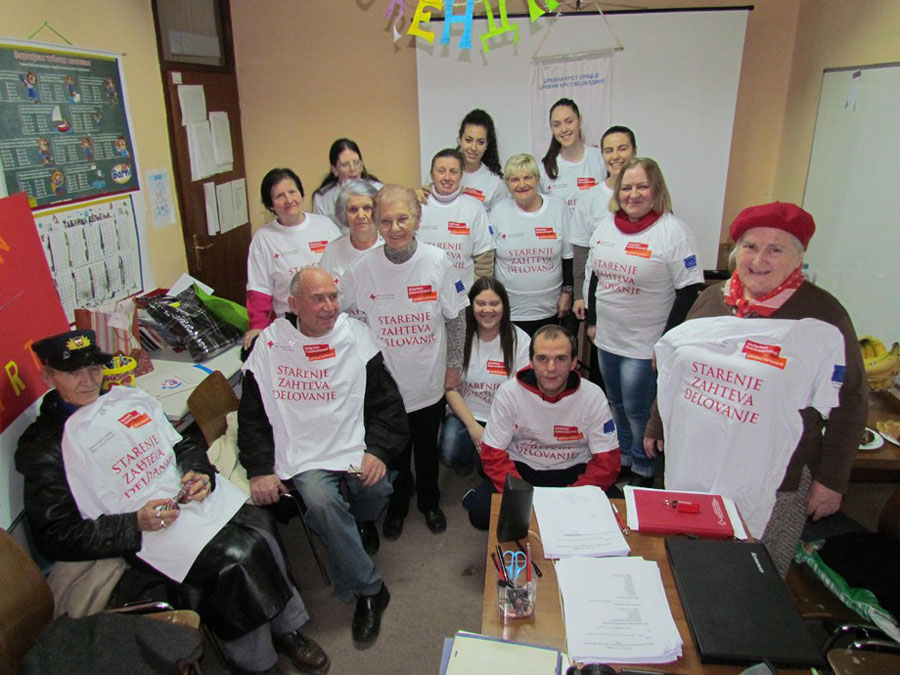Taking Action on Social Inclusion of Older People

Since February 2016 the Red Cross of Serbia has been active in the “Taking Action on Social Inclusion of Older People” project supported by the European Union IPA fund as well as Austrian Development Agency and implemented in five regional countries in the Western Balkans. The project is coordinated by the Red Cross of Serbia with technical assistance provided by Austrian Red Cross.
Taking Action on Social Inclusion of Older People is a three year joint effort to improve the social inclusion of older people in the region so they can take part in decision making in matters that affect them, their communities and the society they live in, as well as to strengthen the organisations of civil society that need to act as a link between older people and institutions to ensure full respect for their human rights, access to services and active participation of individuals in their communities and the society.
Involvement of civil society organisations relies on networking, learning and examples of good practice.
The partners on the project in countries of the region are: Albanian Association of Geriatry and Gerontology in Albania, Association OSMIJEH-Gračanica in Bosnia and Herzegovina, Macedonian Red Cross and Humanity NGO in Macedonia and the Red Cross of Montenegro in Montenegro. These partners all head their own national civil society networks, so in Serbia it is HumanaS (www.humanas.rs), in Albania it is MOSHA network (http://mosha-network.org/), in Bosnia and Herzegovina it is the Network for Ageing with Dignity (http://dostojanstvenostarenje.org/), in Macedonia it is InkluzivaM (http://inkluzivam.org/) while in Montenegro it is Dignitas (http://dignitas-network.org/).
Over the three year implementation period the project will work on strengthening the civil society networks in every country in the project so they can more efficiently and effectively advocate on behalf and along with older people, on topics chosen in each of the countries through situation analysis and strategic planning. In order to base the advocacy activities on reliable data, the data will be collected through targeted research and the results will serve to create advocacy priorities and recommendations for decision makers.
At the same time, the project aims to strengthen older people themselves and support their community level efforts related to social inclusion. Partners in each of the project countries will work on supporting small, grassroots initiatives implemented through registered organisations as well as informal groups. The supported initiatives will lead to better social inclusion of older people in public life as well as to solutions to concrete local problems important to older people as well as their communities. The partners on the project will through these activities collect examples of good practice that will be published and used in advocacy as models for activities that can be replicated and, through encouraging older people to be more active improve their social inclusion as well as the cohesion in the communities.
